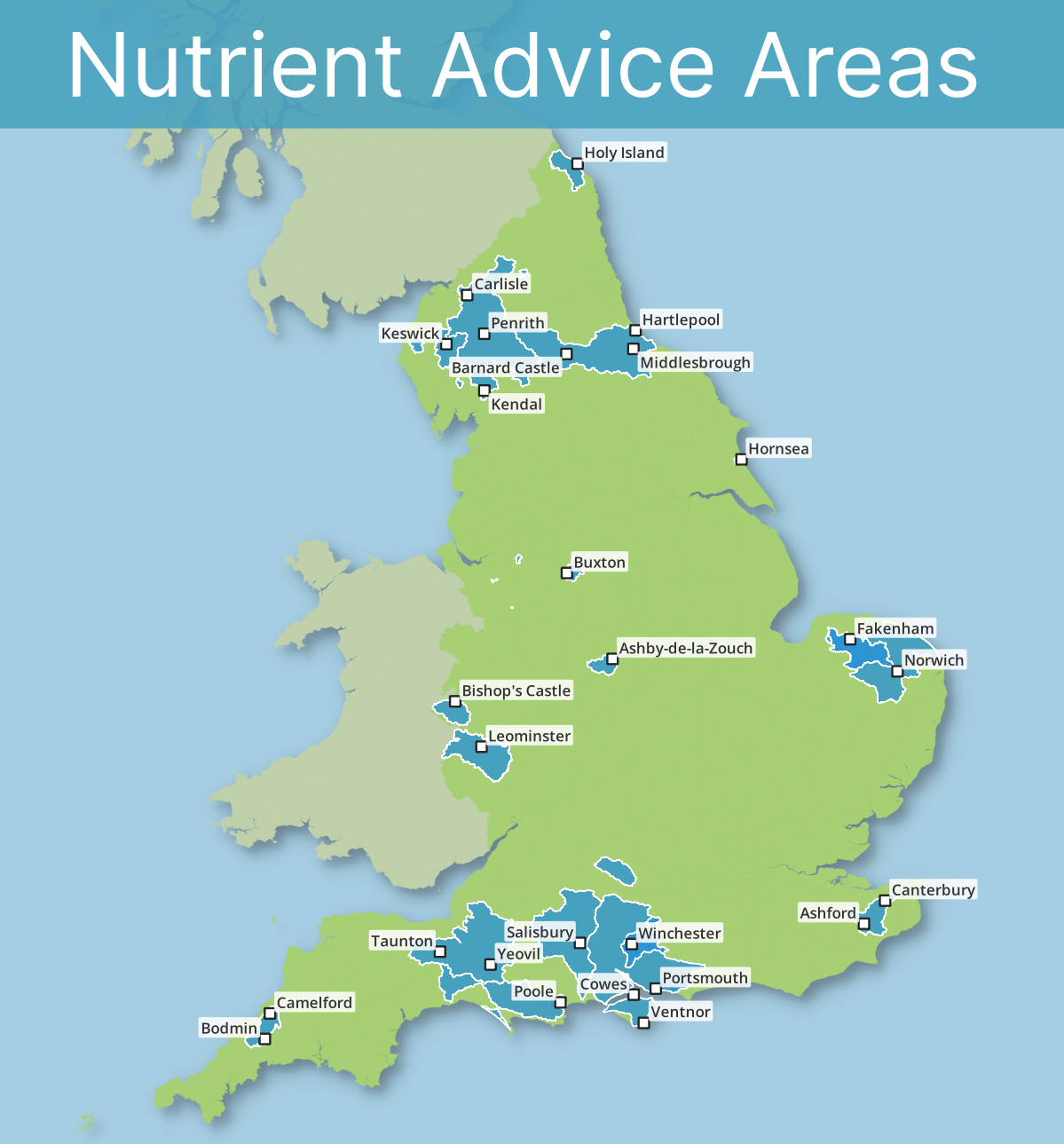What is Nutrient Neutrality?
Nutrient Neutrality is a concept to help ensure that new developments are ‘nutrient neutral’. This means that the finished development won’t increase the amount of nutrients entering freshwater catchments and estuaries via sources such as sewage treatment works, septic tanks and industrial processes. Nutrient pollution is a major environmental issue – in some water environments, increased nutrients such as phosphorus and nitrogen, can encourage the growth of vegetation and algae, which can be harmful to wildlife.
New developments that increase occupation can often put additional pressure on these sources by increasing wastewater production in the area however, by incorporating mitigation measures at design stage we can ensure the new development doesn’t impact the existing nutrient load and be classed and ‘nutrient neutral’. The development is therefore not lowering the amount of nutrients entering the water system but it is not increasing them either. Examples of mitigation measures include woodland planting, wetland creation and treatment work upgrades.
Why is Nutrient Neutrality important?
External sources of nutrients entering river catchments and estuaries can pollute the natural environment. Nutrient pollution is a key driver of poor water quality conditions that impact negatively on natural habitats and wildlife. The main culprits are often nitrogen and phosphorus. If the presence of these nutrients is increased, oxygen levels in the water decrease, causing ‘eutrophication (increased plant growth)’. This can damage water quality and degrade wildlife habitat, and it can be especially detrimental to protected sites that are of critical importance in maintaining UK biodiversity.
The importance and scale of the impact is reflected by a ruling in the Court of Justice of the European Union known as the ‘Dutch Nitrogen Cases’. This ruling resulted in changes to the way Habitat Regulations Assessments (HRAs) consider the potential impact that could arise from increased nutrients being present at protected sites under The Conservation of Habitats and Species Regulations 2017 or the Ramsar Convention. Legal consent may not be given to new developments that are expected to increase the production of wastewater to sites already in unfavourable condition (or close to unfavourable condition). This is to ensure that further damage from nutrient pollution is avoided by allowing necessary mitigation measures to be put in place.

Who is affected?
Any development that will increase occupation, and therefore wastewater production, into any of the designated Nutrient Advice Area catchments will be impacted. Examples of these developments include, but are not limited to:
- new homes
- student accommodation
- care homes
- tourist attractions
- accommodation (hotels etc.)
Natural England has written to local authorities outlining the need for plans or projects to be subject to Habitat Regulations Assessment (HRA).
How we can help
This new legislation may seem daunting as it could impact both current and future planning applications. We are here to help ensure that any planning approval for your project goes through as efficiently as possible by calculating the nutrient budget and advising on how to achieve nutrient-neutral designs in line with the principles set out by Natural England advice and updated regulations.
We have over 30 years of experience undertaking HRAs and working with Local Planning Authorities (such as Cardiff Council, Sheffield City Council, Cheltenham Borough Council, and Forest of Dean Council). Recently we have been providing Expert Technical Advice on Nutrient Neutrality to South Somerset District Council, including the assessment of sHRAs, authoring of HRAs, document validation, and planning application support.
If you are looking for guidance or help with Nutrient Neutral Assessments, Habitat Regulation Assessments, or mitigation strategies please contact Danny de la Hey on danny.delahey@ecusltd.co.uk




